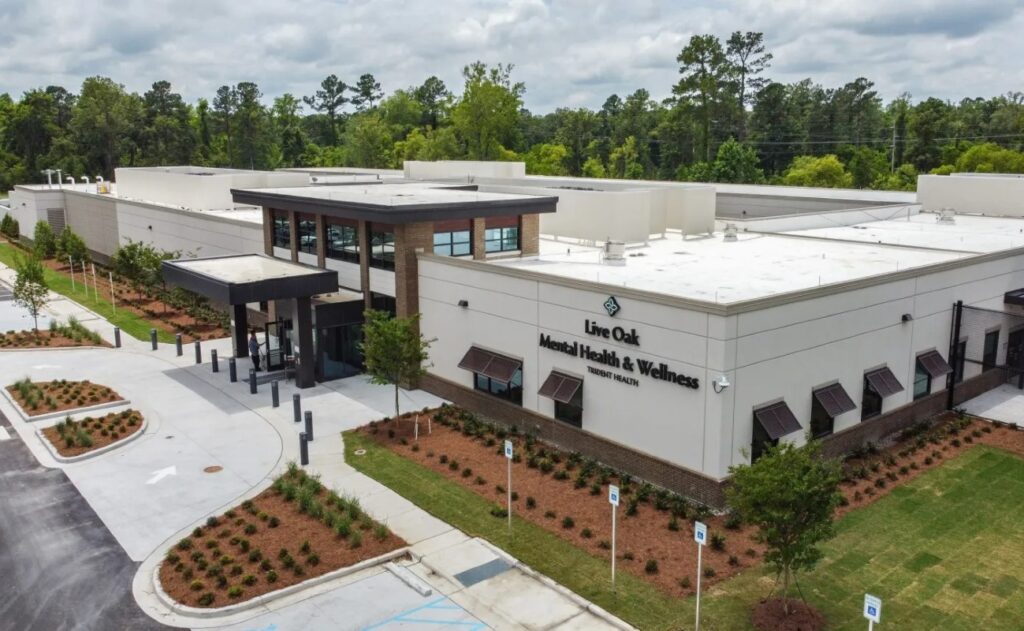
By Lily Levin | South Carolina is ranked the nation’s fifth worst state for the ability of residents to access mental health care facilities, according to a recent nationwide study.
The group that conducted the study, Mental Health Rehabs, analyzed data from the federal Substance Abuse and Mental Health Services Administration to calculate the number of mental health facilities per 100,000 people in each U.S. state. For South Carolina, the proportion was 1.59.
The Palmetto State was one of only seven states — alongside Texas, Hawaii, Florida, California and Alabama — with a ratio of less than two facilities per 100,000 people. Texas topped the “worst access” list, with a proportion still, barely, in the decimals: 0.99 centers for every 100,000 people. Boasting a ratio of 10.36 per 100,000, Alaska took first place for best access nationwide.
Law enforcement involvement, dangers
Melissa Camp, director of operations at Live Oak Mental Health and Wellness center in Ladson, explained that sometimes it’s not the lack of centers that poses the greatest issue, but the ability to get to them.
“The (S.C.) Department of Mental Health has … clinics in almost every county,” she said, “but even still, if you’re in a rural county and you don’t have transportation, that’s going to prevent you from going to care.”
She stressed that when folks can’t access the care they need initially, they may relapse. In turn, that might cause them to end up engaging with law enforcement officers.
Charleston County Sheriff’s Office (CCSO) Communications Director Amber Allen said if someone is undergoing a mental health crisis, a mobile unit will arrive. That person is evaluated by a clinician to decide whether hospitalization is needed. Deputies would, given necessary paperwork, take the individual to a hospital — a duty in addition to their regular responsibility of court-mandated transport, she added.
Allen said Charleston officers undergo mental health and crisis intervention training. But this isn’t a statewide policy: mental health and crisis intervention training for South Carolina law enforcement was first proposed in a 2019 bill that sought to mandate “a physician responsible for the patient’s care” to notify a friend or relative of the patient’s transport, who could then opt into transporting the person in crisis themselves.
Former S.C. Sen. Marlon Kimpson, D-Charleston, filed the bill in three consecutive sessions, the most recent of which was in 2023. He initially filed the policy in response to the 2018 drowning deaths of two people trapped in cages during a mental health-related police transport.
The legislation, however, is still stalled, and its champion recently left his position to join President Joe Biden’s team.
Recent successes in the Lowcountry
Some mental health facilities with inpatient programs in the Lowcountry include the Medical University of South Carolina, Palmetto Lowcountry Behavioral Health Center, the Tri-County Crisis stabilization center — a re-opened Department of Mental Health 10-bed unit — and the Charleston Center, which treats individuals with substance addiction disorders.
To improve the region’s mental health access landscape and respond to a growing need, Live Oak opened earlier this year. Camp explained that it’s distinct for many reasons.
The center is a 60-bed inpatient and outpatient service provider and, said Camp, “it’s the first freestanding behavioral health hospital built in over 30 years.” A freestanding hospital is not a wing within a larger service provider, which is how, for example, Medical University of South Carolina’s psychiatric facility operates.
Though the majority of patients arrive at the center voluntarily, Live Oak, like other mental health facilities and hospitals, receives people mandated by the court to seek treatment, known as involuntary commitment, the specifics of which vary by state. Camp said folks can access Live Oak’s inpatient treatment regardless of ability to pay.
But she also said a lot of patient processing comes from pre-scheduled intake with providers “really just trying to help people figure out which direction to go and what’s their next step,” in mental health care, which may not be services from the facility altogether. Camp noted that employees will take into account transportation needs and budget when coordinating a plan with a client.
The facility itself, she said, is designed unlike others in the area. It’s filled with natural light, open space and hanging artwork — an intentional measure to create a “soothing and calming” environment for those not in their “shiniest of moments.” Camp said the site also aims to decrease stigma surrounding mental health disorders, even if in small ways.
“Our front door is the front door for everybody,” staff, patients — whoever, she noted. And every employee in the building, from the cafeteria staff to care providers, has received training in trauma-informed care. “We want everybody to recognize that, you know, we’re all humans,” she said,” and we all sometimes need a little extra help.”
Lily Levin is a reporter with the Charleston City Paper, where a version of this story first appeared. Have a comment? Send to: feedback@statehousereport.com.


